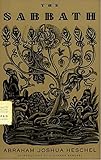In a very thought provoking post the Adventist Environmental Advocacy blog discusses an Adventist theology of ecology based in the Sabbath. We often hear about making the doctrines “practical” and often by that we mean making it relevant to daily life. Here is a post that is “practical” in that it takes the Sabbath and applies it to our communal responsibility and hopefully changes behavior.
This post definitely places the Sabbath into the conversation about ecology and I would recommend all to read it. Here are a few quotes from the post:
If we were to stop there and consider how Christians, and more specifically Seventh-day Adventist Christians might approach ecology, the first answer would have to do with the charge to care for what God creates.
(…Ecological stewardship, on the other hand, is something that we don’t often hear from the pulpit. Perhaps a good starting point would be the simple recognition that it is up to us – it has always been up to us – to tend to that which is God’s.)
Creation Care is not only part of our commemoration of God’s creative work each Sabbath, it is not only fulfillment of God’s charge to care for what He has made, it is also a way in which we continue to look for and to pay attention to the many, many ways in which God reveals Himself to us.

